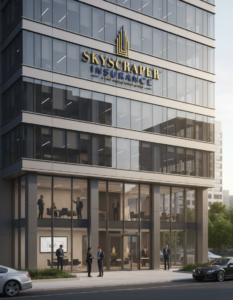People who have been laid off or furloughed from their jobs now have significantly more time to decide whether to hang on to their employer-sponsored health insurance, according to a recent federal rule.
Under the federal law known as COBRA, people who lose their job-based coverage because of a layoff or a reduction in their hours usually have 60 days to decide whether to continue with that same health plan. But under the rule issued this spring, that clock doesn’t start ticking until the end of the COVID-19 “outbreak period” that started March 1 and it will continue for 60 days after the COVID-19 national emergency is declared to be at an end. That end date hasn’t been determined yet.
With this extension of the time frame to sign for up for COBRA coverage, people have at least 120 days to decide whether they want to elect COBRA, and possibly longer depending on when they were laid off.
Take the example of someone who was laid off in April, and imagine that the national emergency ends Aug. 31. Sixty days after that initial date would take that person to the end of October. Then the regular 60-day COBRA election period would start after that.
Some health policy experts question the usefulness of the change given how expensive COBRA-based coverage can be for consumers and how limited its reach is.
The COBRA extension is available only to people who worked at companies with 20 or more employees and who had job-sponsored coverage before being laid off or furloughed. It isn’t an option for people who are uninsured, self-employed or who work for small companies. And even for people who are eligible for COBRA, it’s an expensive option because workers have to pay both their portion of the premium and their former employer’s share, plus a 2% administrative fee.
“For ideological reasons, this administration can’t do anything to expand on the Affordable Care Act’s safety net,” says Sabrina Corlette, a research professor at Georgetown University’s Center on Health Insurance Reforms. “So they’re using these other vehicles. But it’s really a fig leaf. It doesn’t do much to actually help people.”
What does this rule change mean for workers? If you have lost your job, here are some things to consider.
Pros and cons of playing a waiting game
Under the new rule, workers can keep their COBRA options open for far longer than before. It’s always been the case that people could take a wait-and-see approach to signing up for COBRA during the first 60 days after losing their coverage. If they needed care during that time, they could elect COBRA, pay the back premiums and continue their coverage. But if they didn’t need care during that time, they could save a chunk of money on premiums before opting for other coverage to kick in after the 60-day period.
Now, people have even more time to wait and see. Under the rule, once the administration declares the national emergency over, laid-off workers would get 120 days to decide whether to purchase their job-based insurance — 60 days under the new rule and the regular 60 days allowed as part of the COBRA law.
“It becomes a long-term unpaid insurance policy,” says Jason Levitis, a fellow at the Center for Health Policy at the Brookings Institution. “There’s no reason to enroll until something bad happens.”
Still, holding off on enrolling would not be without risk, consumer advocates point out. Someone who has a serious medical emergency — a car accident or a stroke — might not be able to process their COBRA paperwork before they need medical care.
Plus, waiting too long could affect people’s ability to sign up for other health coverage. When people lose job-based health insurance, it triggers a special enrollment period that allows them to sign up for new coverage on their state health insurance marketplace for up to 60 days afterward.
“You could miss your opportunity to enroll in the [insurance] exchange” created under the Affordable Care Act, says Katy Johnson, senior counsel for health policy at the American Benefits Council, an employer advocacy group.
Don’t count on the boss to clue you in
Employers are not mandated to tell people promptly about their eligibility for COBRA. The same federal rule that gives workers more time to sign up for COBRA also pushes back the notification requirements for employers.
“Once an employer lays you off, they don’t have to notify you that you’re eligible for COBRA until after the emergency period,” says Karen Pollitz, a senior fellow at the Kaiser Family Foundation.
For many employers, especially large ones that outsource their benefits administration, notifications are routine and are continuing despite the federal change, says Alan Silver, a senior director at benefits consultant Willis Towers Watson. However, for smaller companies with fewer than 200 employees, getting the information out to workers might be an issue, Silver says.
Costs can be jaw-dropping
In a survey conducted last spring by the Commonwealth Fund, 10% of workers laid off or furloughed because of the coronavirus pandemic reported choosing COBRA coverage for health insurance.
The upside for former employees is that sticking with their previous employer’s plan means they don’t have to start from scratch paying down a new deductible on a new plan. Nor do they have to find new doctors, as often happens when people switch health plans and provider networks change.
But the expense can be jaw-dropping. According to a Kaiser Family Foundation analysis, someone 48 years old paid $599 a month, on average, for individual COBRA coverage last year. Under the new extended rules for sign-up, the high price of choosing that option could climb quickly: If people elect COBRA several months after losing their coverage they could be on the hook for thousands of dollars in back premiums.
And in the event the employer goes out of business — either when the employee is laid off or later — there’s no health insurance to continue to buy.
Might hospitals step in to pay premiums?
Employers are typically not big fans of COBRA. Workers who elect to participate in the program are typically older and sicker than others with employer coverage, the Kaiser Family Foundation analysis found. They may have serious medical conditions that make them expensive to cover and raise an employer’s overall health care costs.
Some policy experts are concerned that giving people more time to sign up for COBRA leaves the door open for hospitals or other providers to offer to pay sick patients’ back premiums in order to increase their own payment above what they’d receive if someone were on Medicaid or uninsured. Doing so could be a boon for some patients but raise health care costs for employers, says Christopher Condeluci, a health care lawyer who does legal and policy work around the Affordable Care Act and ERISA issues.
“Employers are worried,” says Pollitz. After getting laid off, “what if you’re uninsured and you wind up in the hospital six months in, and then the hospital social worker learns you’re eligible for COBRA and offers to pay your premium?”









